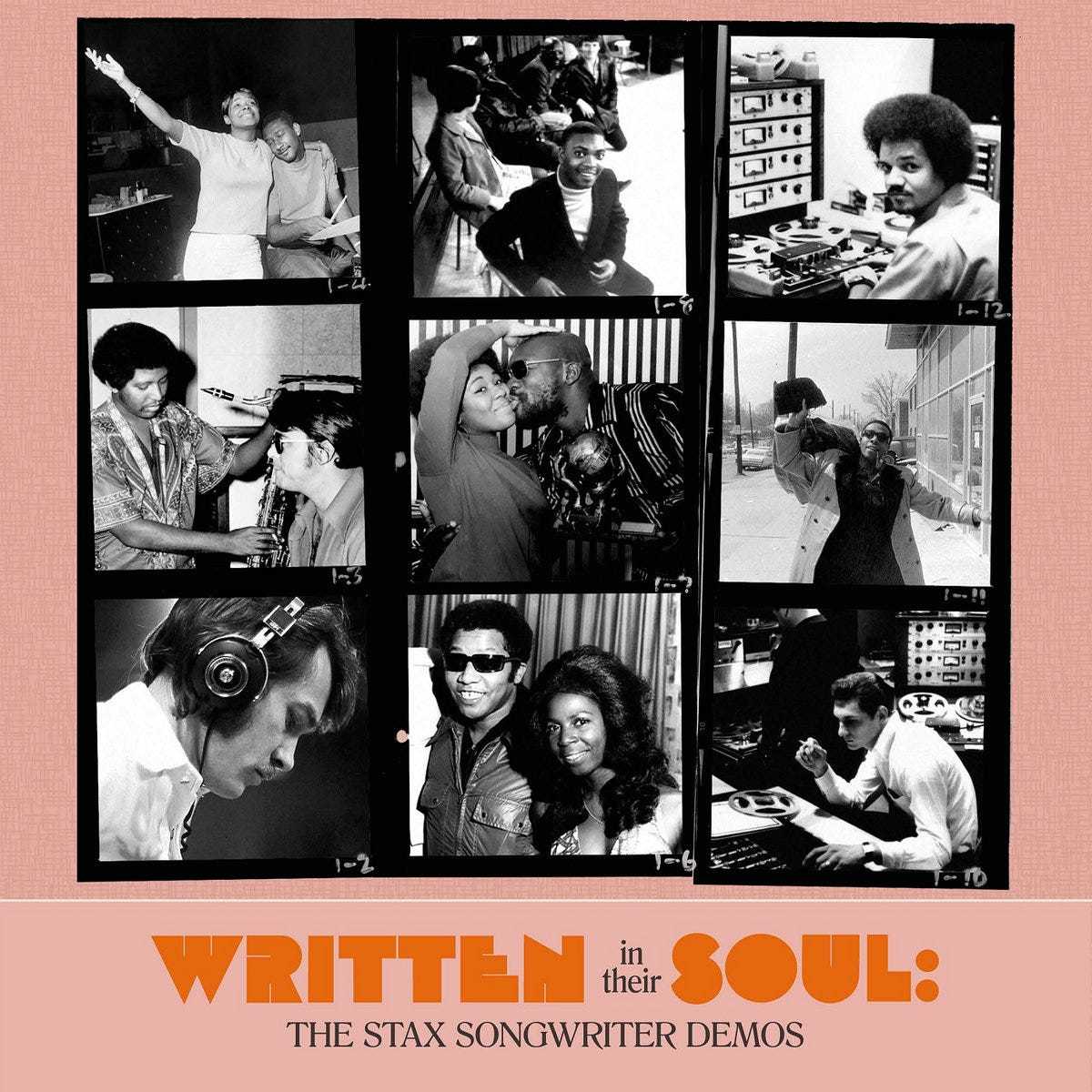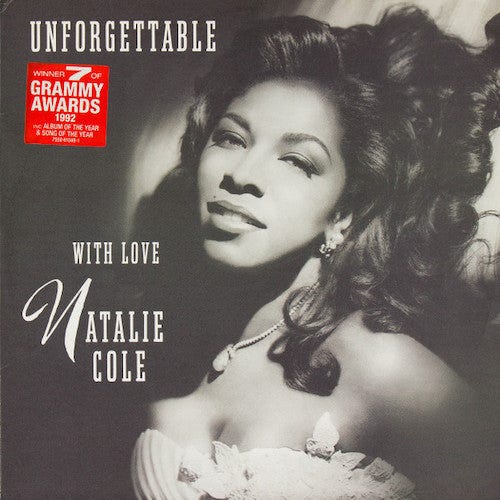The Best Year for Album of the Year
Was it 1985? 1992? 1968? Let's argue!
I got in an argument last week. As is typically the case for me, it was about an important topic: the best year for Album of the Year at the Grammys. Since my friend and I couldn’t come to an agreement, I figured a newsletter about music and data was the best place to resolve it. Luckily, I write one. We decided the loser owed the other a beer. Data, don’t fail me now! As always, this newsletter is also available as a podcast. Listen on Spotify and Apple Podcasts or click play at the top of this page.
The Grammys Suck … But I Really Want to Win One
The same thing happens every year when the Grammy Awards roll around. The nominations are announced. People complain about how The Recording Academy got them exactly wrong. Then the winners are announced. And people subsequently exclaim that the Grammys suck!
I find this cycle of complaints problematic because it is usually focused on the awards that appear on television. The Grammys are much more than those awards, though. While ten to twelve are handed out during the telecast, there are nearly 100 awards given each year.
Want to hear great instrumental arrangements from the prior year? There’s a Grammy for that. Want to hear great traditional blues albums from the prior year? There’s a Grammy for that. Want to read great album notes from the prior year? There’s even a Grammy for that. The large scope of the Grammys is a reminder that the award show is much more than a reason for the most annoying music fans you know to start arguing.

According to The Recording Academy, the organization behind the Grammy Awards, their goal “is to recognize excellence in the recording arts and sciences, cultivate the well-being of the music community, and ensure that music remains an indelible part of our culture.” That’s a tall order. And while part of that order is to select a single greatest album of the previous year, part of it is also to celebrate music in all its forms — even those that don’t get played on the radio — and invest in the next generation of artists. For that reason, I try to cut the Grammys and The Recording Academy a break.
Still, sometimes you can’t help but wonder how the nominees and winners shook out the way that they did. For example, in 1992 the Record Academy nominated the following albums for Album of the Year:
Heart in Motion by Amy Grant
Luck of the Draw by Bonnie Raitt
Out of Time by R.E.M.
The Rhythm of the Saints by Paul Simon
Unforgettable... with Love by Natalie Cole
That last album, Natalie Cole’s Unforgettable… with Love, ended up taking home the trophy. But it’s worth remembering that the 1992 Grammy Awards were celebrating 1991. Want to know what else happened in 1991?
Barely a month after Pearl Jam’s debut album Ten came out, Nirvana pushed grunge into the mainstream with the September 24th release of Nevermind.
On the same date, the Red Hot Chili Peppers released their commercial breakthrough Blood Sugar Sex Magik and A Tribe Called Quest took hip-hop in a new, jazzier direction with The Low End Theory.
Metallica’s self-titled record, later dubbed The Black Album, was released with “Enter Sandman” as the lead single, turning the thrash heroes into pop stars.
I could go on. 1991 was a highly consequential year in popular music. And I know that the Grammys aren’t some monolith. It’s voted on by scores of people, all their flaws and prejudices included. Nevertheless, it’s strange they decided to honor a synth pop album, three singer-songwriter albums, and a vocal jazz album in a year where so much other stuff went on.
If the Grammys got it so wrong at their 1992 ceremony, which year did they get the most right? Put another way, which year has the best batch of Album of the Year nominees? I decided to address this question by combining critical and fan opinions.
The critical opinions would come by consulting and combining Rolling Stone’s greatest album lists with selections from the book 1001 Albums You Must Hear Before You Die. These lists don’t come with ratings, so all that mattered was inclusion. The fan opinions, by contrast, were rating-based. They came from RateYourMusic, a crowdsourced database with over six million releases that allows fans to rate albums on a half-point scale from 0.5 to 5.0. To arrive at my results, I first sorted each year by the percentage of nominees that appeared on either of the critical lists and then by the average score those same nominees were given by RateYourMusic users.
By this methodology, 1971 just ekes past 1988 as the best year for Album of the Year at the Grammys. In 1971, all of the nominees except Chicago II were included in one of our two critical lists. And that album isn’t even bad. The song “25 or 6 to 4” is worth the price of admission alone.
Overall, I was happy with the results that this methodology spit back. These were generally very strong years. But then as I took a closer look at 1985, I was left scratching my head. Five albums were nominated that year: Bruce Springsteen’s Born in the U.S.A., Tina Turner’s Private Dancer, Prince’s Purple Rain, Cyndi Lauper’s She’s So Unusual, and Lionel Richie’s Can’t Slow Down. Even though I love “All Night Long (All Night)”, the second song on Richie’s Can’t Slow Down, that album is pretty clearly the weakest of the five. Nevertheless, it won! This got me thinking about which years the winner was significantly worse than its fellow nominees.
To do this, I took the average percent difference between the RateYourMusic score of the winner and the fellow nominees. For example, the score of 3.22 that Lionel Richie’s Can’t Slow Down received on RateYourMusic was on average 12.9% lower than the RateYourMusic scores of the fellow nominees. That’s not even the worst year, though. In 1997, Celine Dion’s power ballad-filled Falling into You, beat out Waiting to Exhale, the soundtrack to the movie of the same name, and three stone cold classics: The Smashing Pumpkins’ Mellon Collie and the Infinite Sadness, Beck’s Odelay, and The Fugees’ The Score.
For good measure, I decided to run the same report in reverse to find the years where the selected winner was notably better than the competition. To be clear, this doesn’t mean that the selected winner was truly the best album released that year. It just means that compared to the nominees, it was rated much higher.
These results mostly check out. I think the selected winners in these years — namely Arcade Fire’s The Suburbs (2011), The Beatles’ Sgt. Pepper’s Lonely Hearts Club Band (1968), Stevie Wonder’s Songs in the Key of Life (1977), Stan Getz and João Gilberto’s self-titled album (1965), and Kacey Musgraves Golden Hour (2019) — all deserved to take home the trophy. Still, it’s worth remembering some of the competition those albums beat. The Beatles, for example, deserved the award in 1968, but the records by Frank Sinatra (i.e., Francis Albert Sinatra & Antônio Carlos Jobim) and Bobbie Gentry (i.e., Ode to Billie Joe) are both quite good. Sgt. Pepper’s Lonely Hearts Club Band is just on another level.
To close, I’ll remind you that this piece was inspired by an argument between my friend and I about the best year for Album of the Year at the Grammys. This was a high stakes argument. The loser has to buy the winner a beer. I staked my claim on 1985. He pushed for 1988. If you scroll back to the first table in this piece, you’ll see we were both wrong. 1971 bested both of the years. That said, 1988 did come out in front of 1985. For that reason, I will be buying the beer. But I’m sure the argument will continue. You may not like the Grammys, but at least it gets people talking.
A New One
"Got to Be Mine" by Vulfmon & Evangeline
2024 - Funk
This is one of those records that had me hooked from the first moment. And I literally mean that. The song opens with vocalist Evangeline shouting, “Hey!” That shout alone was enough to draw me in. Everything that came after kept me engaged, though. The laid-back groove. The fat bass tone. The cutesy falsetto. The interplay of the flutes and the horns. The pittering vocal melody when the band drops out around the two-minute mark. When you can highlight that many elements in a song, you know it’s something good.
An Old One
"Bugs" by Bobbie Gentry
1967 - Singer-Songwriter
Earlier, I noted that though The Beatles deserved their Album of the Year win in 1968 for Sgt. Pepper’s Lonely Hearts Club Band that both Bobbie Gentry and Frank Sinatra also had worthy nominations. Gentry’s album Ode to Billie Joe is best remembered for the chart-topping, southern gothic title track. But the entire record is a masterful example of how music and lyrics can work together to create a vivid atmosphere.
“Bugs”, a short track from the B-side of the record, is a good example of this. The lyrics are pretty simple. Gentry is singing about a hot, insect-infested day, “granddaddy-long-leg climbin' on the screen” and “Yellow jackets swarmin' 'round your head.” But the arrangement is filled with musical details that make those bugs feel so present that you almost instinctively start swatting at the imaginary flies zipping around the room. Few songs can create a reaction so visceral.
Shout out to the paid subscribers who allow this newsletter to exist. Subscribers get four additional newsletters each month and access to our archive. Consider becoming a paid subscriber today!
Recent Paid Subscriber Interviews: Pitchfork’s Editor-in-Chief • Microphone Engineer • Spotify’s Former Data Guru • American Idol Contestant • John Legend Collaborator • Wedding DJ • What It’s Like to Go Viral • Adele Collaborator
Recent Newsletters: The Proper Way to Listen • I Miss You, Buddy Holly • Blockbuster Nostalgia • Pop Songs & Baby Names • Recorded Music is a Hoax • 14 Issues in Music Today • The Evolution of Music Criticism
Want to hear the music that I make? Check out my latest single “Late Nite Kicks” wherever you stream music.








Great article and research! Love how much time and thought you put into your newsletters. One band I am hooked on that released a new album in 2024 is Lake Street Drive. here is a sampling https://www.youtube.com/watch?v=bn6pKkS6auU
One of your best works here Chris